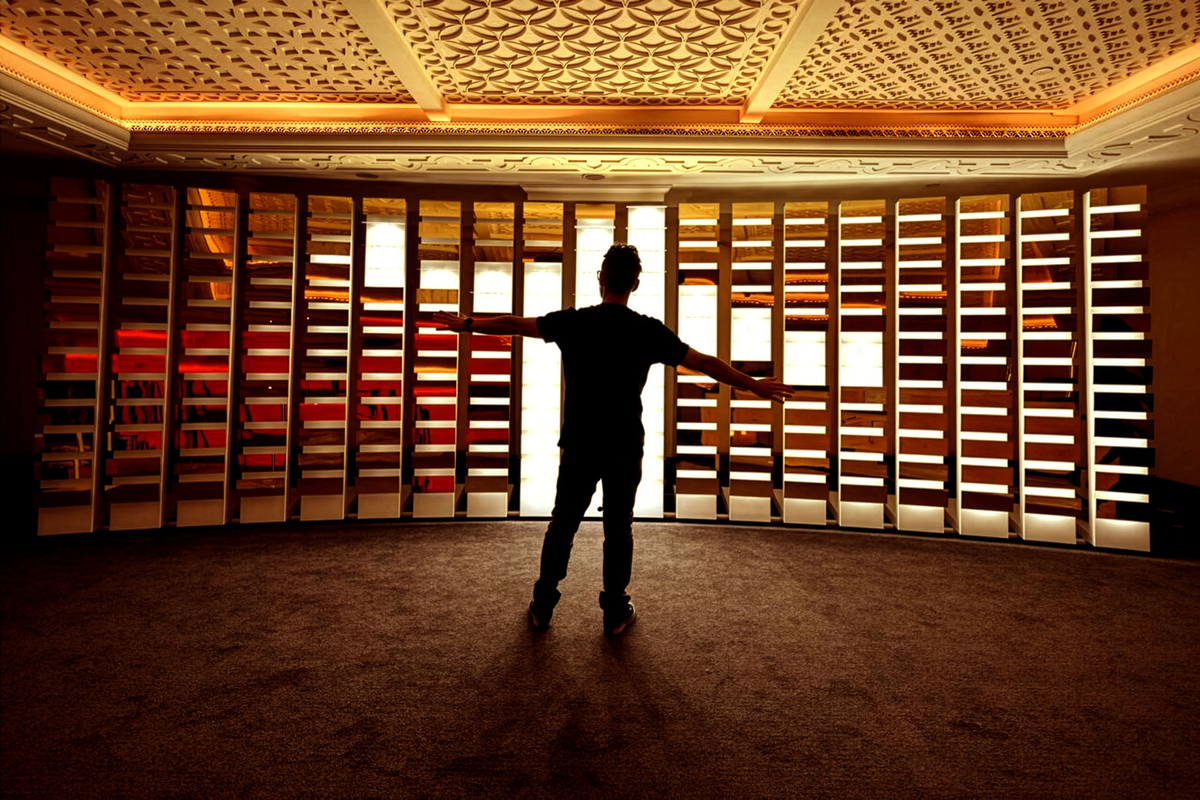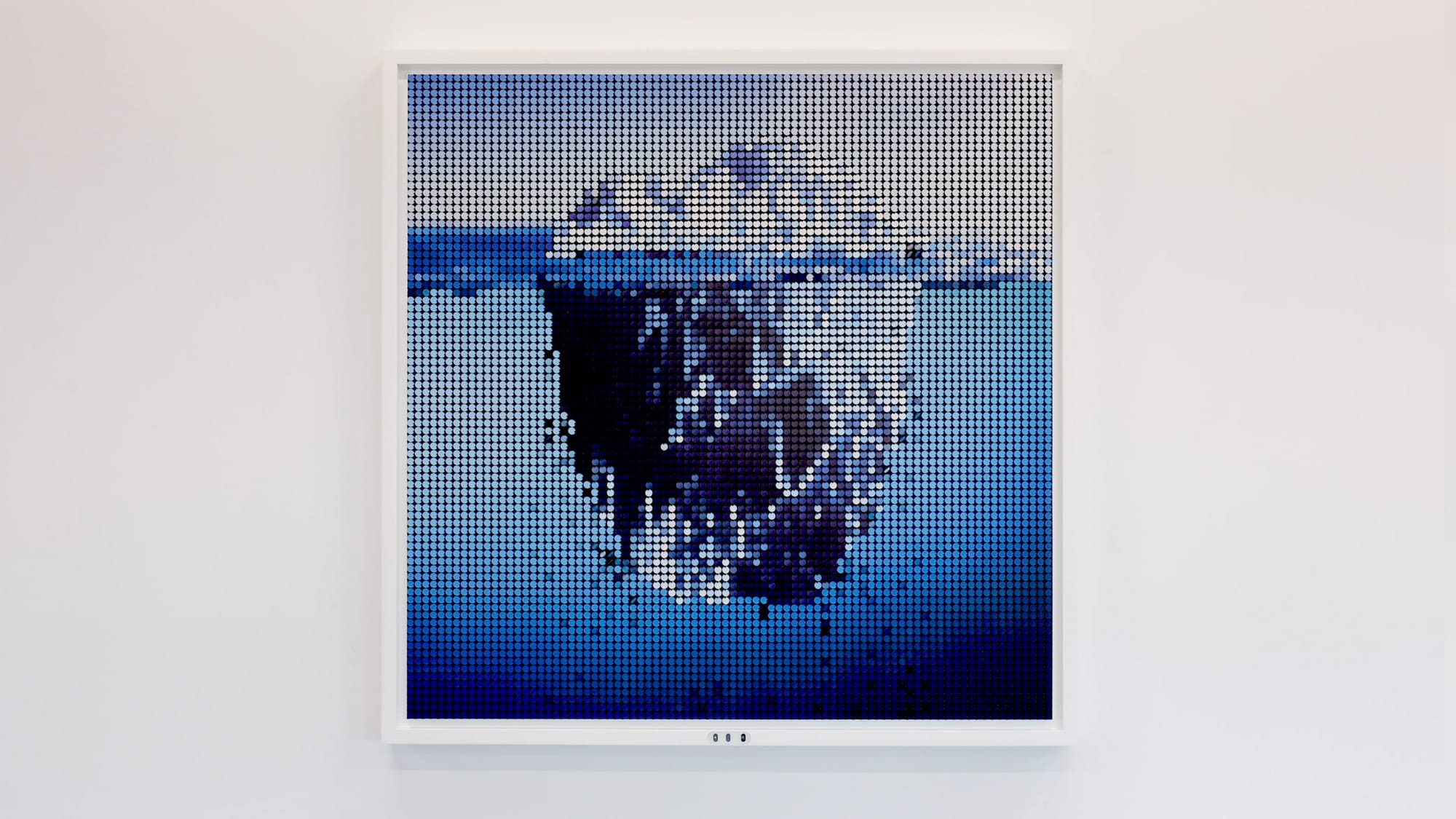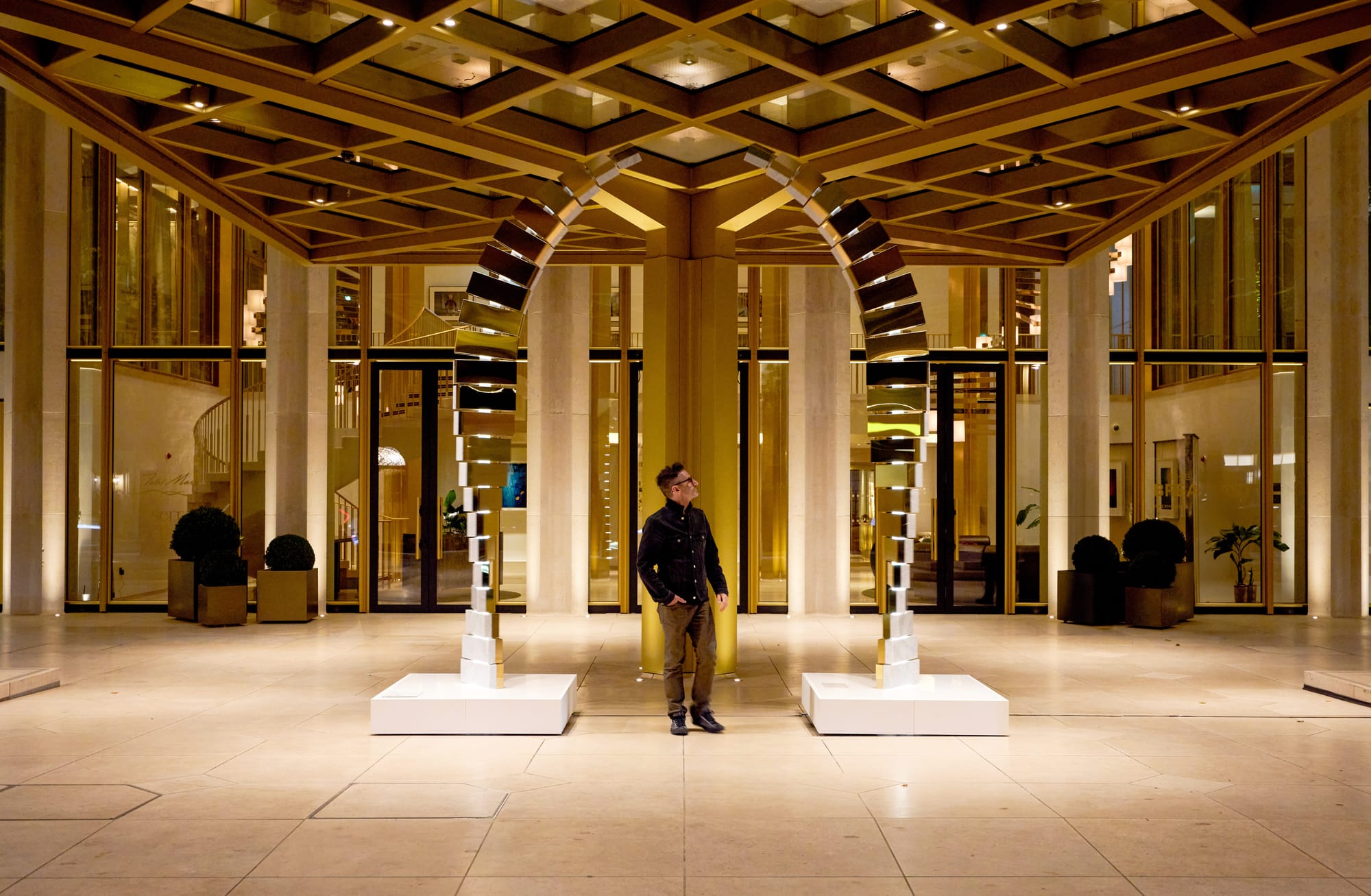
The Brooklyn-based artist Breakfast will take over a luxury Miami Beach hotel during Miami Art Week with seven kinetic sculptures powered by real-time climate datasets.
Among the works is Carbon Wake, a 20-foot-wide gold kinetic piece that will hang on the façade of 1 Hotel South Beach. A large moving archway titled Consumption will rise from Tala Beach.
“Consumption is all about society's obsession with consuming everything. The piece has these ripples that move through it on its own, and those movements are based on how much water is being consumed by wherever the piece goes,” Breakfast said in an interview.
Breakfast said the piece uses city-level water-consumption data sourced from government agencies, and the datasets shift as the work travels.
“Since it will be set up for Miami, as more people in Miami are consuming more water, the piece will sort of ebb and flow more,” he said. “Then when you walk through it, it responds to you and gives you this reflective moment.”
Sign up for Urgent Matter
Sign up for a free account to have our weekly recap newsletter, breaking news updates and subscriber-only articles delivered to your inbox.
No spam. Unsubscribe anytime.
Breakfast said that Carbon Wake is one of the few pieces made by his studio that uses artificial intelligence technologies.
Every minute, the work’s A.I.-driven system selects a new city and pulls public data on its energy use, weighing fossil fuels against renewable sources and factoring in time of day and weather. If the city is burning more carbon, the sculpture’s flow appears to rise; if renewables dominate, it falls. The velocity of that flow changes with the intensity of the data.
“Normally, I don't like having anything in between the data source and the piece itself,” Breakfast said. “In this case, we're leaning on A.I. just because there are so many factors at play in real time that I just want to get what feels like the most accurate representation of the moment in terms of that data.”
Breakfast, whose work has shown at the Venice Biennale, is best known for pioneering the modern artistic application in art of flip-disc arrays, a technology developed in the 1960s and primarily used for public transit displays. The discs are essentially electromechanical “pixels” that flip from one side to another when triggered by a computerized signal.
Each side of the disc is marked by a contrasting color or reflective surface, and when thousands of them flip in sequence, it delivers the medium’s signature rippling effect.
One of his pieces that will go on view at 1 Hotel depicts an iceberg and is connected to real-time satellite data from NASA, measuring the current ice sheet melt in the Antarctic. The size of the iceberg changes based on the current data.
The viewer can interact with the work, using arm movements to attempt to build the iceberg back up. But brutally, the iceberg begins to melt again.

One ongoing challenge, he said, is a collector base wary of electronic works that break. “I'm battling a long history of people living with broken things,” he said. He also revealed a new direction in his work in an attempt to make his art more accessible for buyers.
Most of his works start around $40,000 to $50,000, he said, in part because his 19-person team—including engineers from SpaceX and Disney—builds everything in-house. He’s now developing a more accessible tier, aiming for works around $12,000.
One new work draws on the “warming stripes” devised in 2018 by climate scientist Ed Hawkins, which visualize rising annual temperatures through shifting bands of color. Breakfast reimagines the concept in an interactive piece where viewers appear within the work, their clarity modulated by current global temperatures.
“I bring all this up because that's become a huge part of how I see it as a sustainability effort, but also just how I show people that these things can be built to last,” he said. “But that’s just a much more costly process, so the balance is to keep that quality level up but bring the price down.”

Consumption and Carbon Wake, which is having its first U.S. presentation after debuting at Art Dubai this year, will be on view December 2-8. The remaining five works at 1 Hotel will stay on through January.
Breakfast will also bring artworks for inclusion at the Art Miami fair, including a new work called Orbital Debris that at first glance appears to be just a digital display of small white dots against a field of black. But those dots represent satellites and other space debris floating around Earth in real-time and move in relation to the perspective of the viewer.
While much of Breakfast’s art focuses on climate change, the artist is blunt about the limits of sustainability in tech-heavy work.
“I'll be very honest, is this perfectly made of clean materials? Hell no, it's not. And if I did that in its entirety, I would never sell a single piece. So, there's this balance that I have to do. My sustainability goal here is to not end up in a trash heap somewhere,” Breakfast said.
“And along the way, we're going to use as many of the best sustainable materials as we can without the thing just getting astronomically expensive. I use as much aluminum as possible, which is really the most recyclable material. I wish I could sit here and say, yeah, it's perfect, it's not fucking perfect.”
Please support independent arts journalism by subscribing to Urgent Matter and supporting our work directly.
